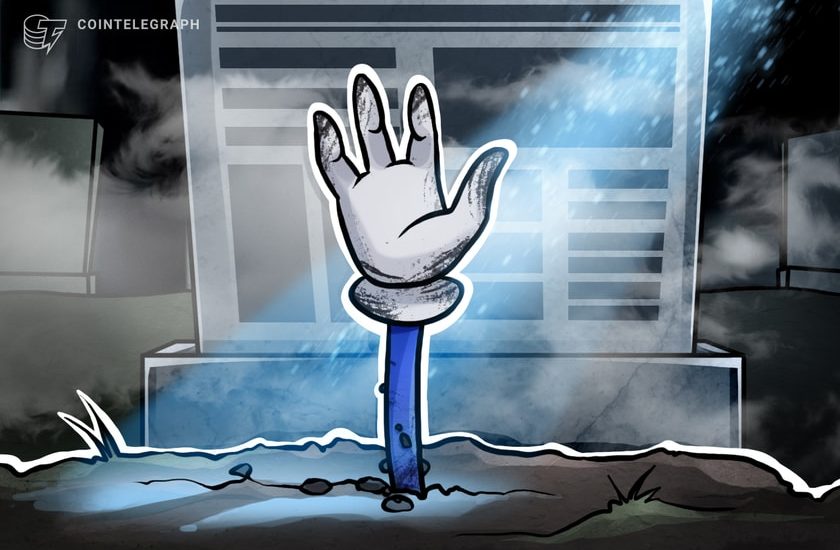- April 19, 2023
- Posted by: admin
- Category: BitCoin, Blockchain, Cryptocurrency, Investments


Cointelegraph went to the NFT.NYC event in New York and learned how industry leaders feel about the state of play-to-earn gaming.
In this week’s newsletter, read about how Mastercard launched an accelerator program for musicians powered by nonfungible tokens (NFTs), and how online safety groups urged Meta to refrain from allowing minors into its new metaverse. Check out what happens to NFTs when a collector dies, and, in other news, find out how publishers are looking for alternatives to play-to-earn gaming. And don’t forget this week’s Nifty News, featuring Bitcoin (BTC) miners earning from Ordinals and Reddit facing backlash for Gen 3 avatars.
Mastercard launches NFT-gated musician accelerator program
Payment processing company Mastercard announced an artist accelerator program with a Web3 twist. The program aims to help musicians by giving them access to artificial intelligence tools and other experiences. However, it will only be accessible to those with the limited-edition Mastercard Music Pass NFT.
The NFT is free for musicians and fans until the end of the month. The company partnered with Polygon to make the initiative happen. According to Raja Rajamannar, Mastercard’s chief marketing and communications officer, this program helps users understand and trust how blockchains and digital assets are used.
What happens to NFTs when you die?
Cointelegraph spoke with various professionals to find out what will happen to NFTs when a collector dies. According to Oscar Franklin Tan, the chief legal officer of NFT platform Enjin, smart contracts are flexible enough to transfer NFTs upon the owner’s death, but the death needs a way to be linked to the contract.
Meanwhile, Ajay Prashanth, an executive at NFT insights platform bitsCrunch, echoed Tan’s comments. Prashanth said that setting up smart contracts to automate NFT transfer after death is “technically feasible.” However, it requires connecting to legal documents that certify the death.
Metaverse for youth: Meta urged to ban minors from virtual world
Online safety groups have sent a letter to Meta CEO Mark Zuckerberg, urging the company to cancel its plans to invite teenagers and young adults to use its metaverse application, Horizon Worlds. According to the activists, Meta must assess the risks of allowing the youth into the metaverse.
The groups also urged the company to wait for peer-reviewed research on metaverse risks to make sure that kids and teens would be safe. According to the letter, children are likely to face privacy issues and harassment within the metaverse.
NFT.NYC: Play-to-earn is not dead, but game publishers are looking for alternatives
Cointelegraph went to the NFT.NYC 2023 event in New York to get exclusive insights from the conference. One of the topics discussed was play-to-earn gaming and how companies are shifting their strategies during the crypto winter.
Minoru Yanai from Japanese manga and anime design company Minto said that companies are now looking at “play and fun” and even “earn or swap.” He added that publishers and developers are now focusing on sustainability and flexibility.
Nifty News: BTC miners cash $5M on Ordinals, Reddit NFTs get botting backlash and more
Data from Dune analytics showed that Bitcoin miners had earned over $5 million from Bitcoin Ordinals as BTC transaction fees from inscriptions increased by 240% in the last month. Meanwhile, Reddit’s third batch of NFTs, commonly called “Gen 3,” faced backlash over botting issues. Redditors claimed that they missed out on the sale due to spam bots swooping in almost instantly.

CHECK OUT COINTELEGRAPH’S NFT STEEZ PODCAST
Thanks for reading this digest of the week’s most notable developments in the NFT space. Come again next Wednesday for more reports and insights into this actively evolving space.
